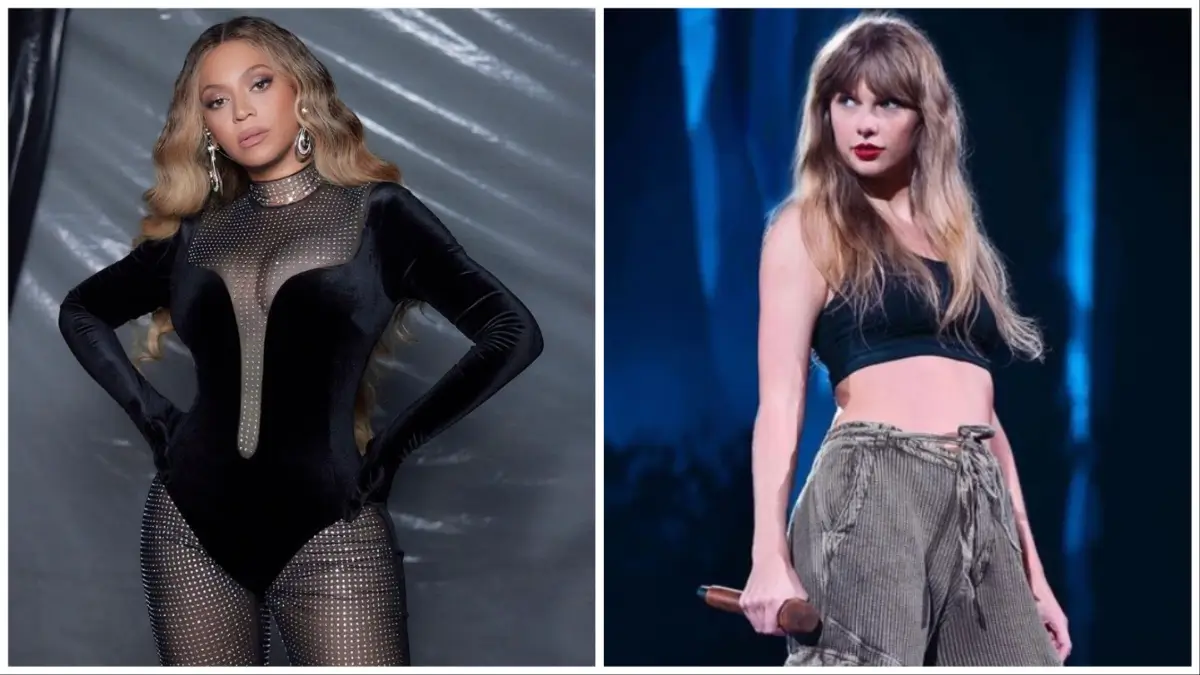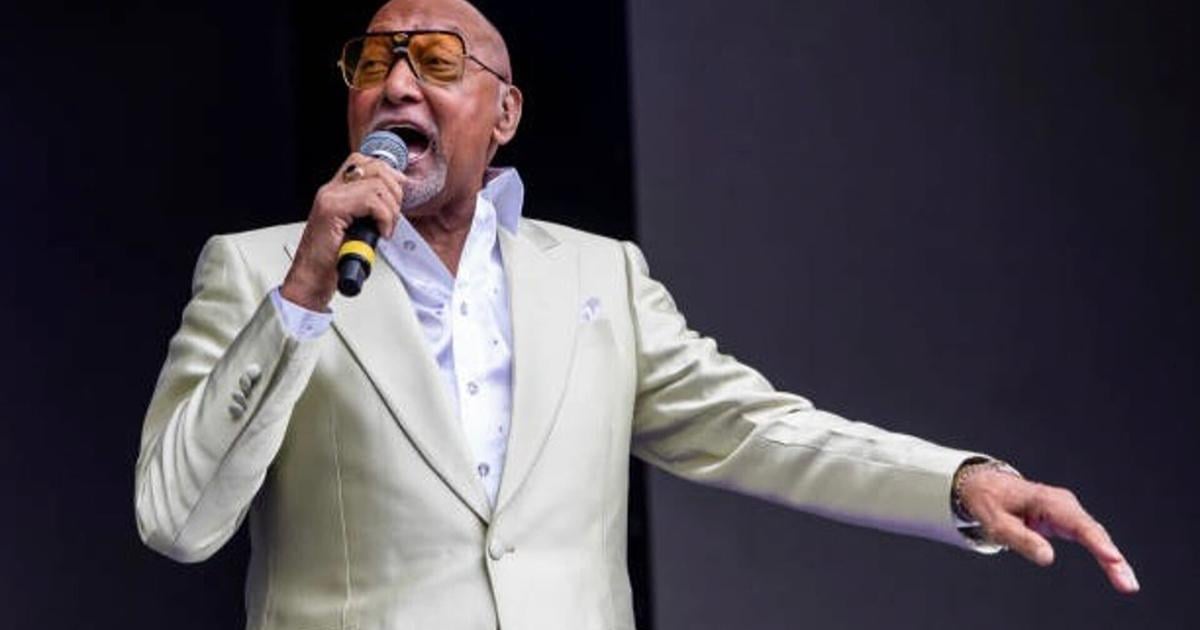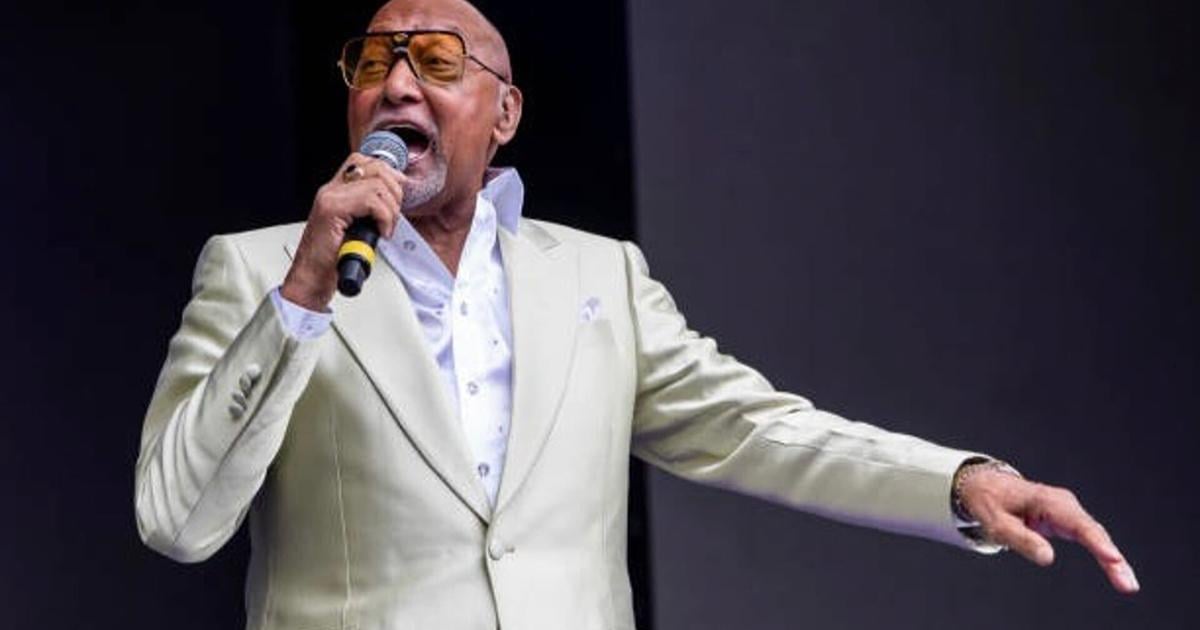About this series
-
This week, LAist Studios debuts Imperfect Paradise: The Castle, the latest in our weekly podcast series.
-
It’s the story of how one hobbyist magician fell in love with a Los Angeles institution cloaked in mystery — the Magic Castle. And what happened when that love was confronted with the realities of an exclusive members-only club and an internal reckoning brought on by the summer of 2020.
Carly Usdin was the kind of kid who spent a lot of time in imaginary worlds: reading comic books, imagining superheroes and watching David Copperfield specials.
Whenever their parents hit the garage door button, Carly liked to stand next to it with their arm out, as if they were controlling the lifting and lowering of the heavy metal gate.

Carly Usdin in 2023.
(Natalie Chudnovsky
/
LAist)
Carly knew they didn’t have real magical abilities, but in pretending they found something they needed — a sense of power.
“I think many kids feel powerless,” they say, “but especially the kid that I was, getting teased at school for being smart and being queer and being Jewish, and not even knowing I was queer yet, and wanting out of that so badly.”

Carly Usdin as a child.
( Courtesy of Carly Usdin)
Carly did get out. They left their small town in central New Jersey, became a filmmaker and married their now-wife. And then in 2013, at the age of 30, they moved to Los Angeles.
In L.A., Carly was reminded of their childhood interest in magic, and started to get curious about why there were so few famous women magicians. At the time they were identifying as a woman, their gender assigned at birth (they now are non-binary and trans). While in a research rabbit hole, they started reading about the Magic Castle, an exclusive members-only Los Angeles club for magicians and lovers of magic.
Carly had heard of the Magic Castle. They knew it had a reputation for being frequented by celebrities, that its former president was Neil Patrick Harris and that it was invitation-only. And Carly desperately wanted to get in.
Besides being invited by a member, there are several workarounds to getting into the Magic Castle — for example, if you book a stay at the Magic Castle hotel. But gaining longer-term access is more difficult.
“I started doing research into the Magic Castle,” Carly remembers, “and I found the Magic Castle website and it said ‘we offer adult magic classes.’ And the kicker is that while you’re enrolled in lessons, you basically have a temporary membership to the castle.”

The Magic Castle in Hollywood on Oct. 13, 2021.
(Valerie Macon
/
AFP via Getty Images)
Carly had found a backdoor into the Castle.
And Carly was aware they didn’t fit the magician stereotype. Actually, that’s what made them excited about it.
I was like, I’m gonna infiltrate. I’m gonna take my queer self in there, cause it’s a space that’s clearly not meant for me.
— Carly Usdin
“If you say magician, you get a very specific image in your head,” says Carly. “It’s probably an older cis white heterosexual man, because that has long been the archetype of the magician in American popular culture. So I was like, I’m gonna infiltrate. I’m gonna take my queer self in there, cause it’s a space that’s clearly not meant for me.”
Why is the Magic Castle a big deal?
The Magic Castle
, or just “The Castle” as many members call it, is run by the Academy of Magical Arts. Just a few blocks from the tourist center of Hollywood, the Castle, with its stained glass windows and turrets, looks like a French chateau plucked out of a Disney movie. It was built as a private home around 1909. And then in 1963 it opened as a private clubhouse for magicians, complete with a liquor license.
An evening at the Castle requires not only an invitation but adherence to a dress code, an admission charge, parking fees and the purchase of an entree. If you throw in a cocktail, that’s at least a $100 night out. There are no photos or videos allowed inside. The exclusivity of the experience is part of the allure.
Besides its mystique to the layperson, the Castle is an important institution in the world of magic because being a member, or better yet, a booked performer, serves as a stamp of legitimacy.
“There isn’t a Ph.D. in magician,” says magician and Castle member Paul Draper. “So, when I’m auditioning for a television show, when I speak to an event planner, the first question I’m asked is, ‘Have you ever performed at the Magic Castle?'”

Magician Kayla Drescher performs at the Magic Castle on Oct. 13, 2021.
(Valerie Macon
/
AFP via Getty Images)
The Castle is also a coveted and somewhat rare performance venue, especially in contrast to the kinds of gigs that sustain many magicians.
“You know who doesn’t wanna watch magic? A bunch of people at their company holiday party. They wanna get drunk and just talk about how weird the year was,” says magician Kayla Drescher.
But at the Castle?
“People actually put in the effort to come watch magic,” says Kayla. “They’re all dressed up and they’re so excited to see you.”
Membership at the Castle comes with other benefits: access to its library, spaces to workshop tricks and a place to connect with some of the best magicians in the world.
“You have all these magicians that have performed here, you have all this history,” says Kayla. “There’s a library of all these books with secrets. The guy who made the Statue of Liberty disappear for David Copperfield? He’s just sitting at the bar. All the people, all the tricks, all the stories, it all just exists in one place.”
Beginner’s magic
Carly
was full of nerves driving to their first class at the Magic Castle in the fall of 2014.
Inside, there was a small reception area lined with bookshelves and no doors. Unsure of what to do next, Carly examined the bookshelves, drawn to one particular statue of an owl.
“The people working at the front told me you have to say the magic word in order for the owl to grant you admittance to the Castle,” says Carly. So they spoke the magic words (“Open Sesame”) and the bookshelf pulled back to reveal the Castle.
“Just that moment alone, I was giddy,” Carly says. “Basically you’re in a parlor-looking bar area and there’s like a big old timey fireplace. The color palette is like reds and golds and purples. All the wood is old, dark wood. It is Victorian, dark, moody, so much old art and old artifacts of magic. It feels like exactly this thing that’s plucked out of time.”

The Close-up Gallery at the Magic Castle, in Hollywood on Oct. 13, 2021.
(Valerie Macon
/
AFP via Getty Images)
The Castle can feel maze-like, with its various floors and bars. Every week there’s a new schedule of booked magicians performing at the many theaters, from the intimate Close-up Gallery to the larger stage at The Palace of Mystery. There are tables for magician members to set up impromptu shows. And a self-playing piano takes song requests (if they’re directed to the ghost of Irma — and yes, she also takes tips).
After several wrong turns, Carly found their way to a small instructional classroom. And they were delighted by every aspect of that first class.
“It felt like being back in school,” they say. “We went over the rules of being a magician. Some of the primary ones being, you don’t do the same illusion for the same audience more than once. Obviously, you do not reveal your secrets.”
Carly remembers the initial classes being focused on card tricks: how to handle a deck, different ways of shuffling and grips. And Carly was delighted that they learned it all easily.
Carly has obsessive compulsive disorder — OCD. In high school, before they got proper care, they had a tough time focusing because of it. But learning magic tricks engaged their attention in a very specific way.
“When I was doing these tricks, I wasn’t experiencing my OCD symptoms,” Carly says. “It’s just this perfect blend of mental and physical working in harmony where you have to be paying attention on both levels really closely.”

Carly Usdin practicing close-up magic, circa 2014-2015.
( Courtesy of Carly Usdin
/
Courtesy of Carly Usdin)
Carly was in love. They didn’t want to become a professional magician, but they were constantly thinking about magic, carrying a deck of cards everywhere to practice, savoring the feeling of delight that came with successfully pulling off a trick.
After the beginner course ended, Carly took Magic 2 and then Magic 3 and Magic 4, learning coin tricks and more complicated illusions. After class, Carly would catch magic shows at the Castle with their classmates.
And they noticed that the Castle’s demographics matched their initial assumptions.
Stepping back in time
Several current
and former Magic Castle members have described the experience of going to the club as stepping back in time, which comes with charms and also, drawbacks. Most glaringly, the demographics of the Castle.

A shelf hangs at The Houdini Seance Room at The Magic Castle on Oct. 24, 2008.
(Angela Weiss
/
Getty Images North America)
Several members have described the club as mostly white and mostly male. In an email, a Castle representative said the club doesn’t keep data on the race of its members and did not provide data on the gender of members, either.
But according to one former member who gathered numbers from a Castle membership representative, in 2019 magician membership was 12% women.
Numbers of women performers at the Castle are even lower — the Castle’s own records identify only about 8% of performers over the last three years as being women.
That tracks with national estimates of women magicians in the U.S. For much of its history, performance magic in the Western world was exclusively male.
For magic historian and Magic Castle member Angela Sanchez, the story starts as far back as the Witch Trials in 16th century Europe.
“In a patriarchal society, for women to know something that men do not, is a bad thing. And so to be accused of being a witch is to be accused of having secret knowledge that a man does not have access to,” says Angela. “And so this notion that a witch, a woman who holds power, is adverse to what a woman should and ought to be, is something that cues you into how women in magic are generally treated in Western European societies.”
At the same time as women were being burned at the stake for witchcraft, there were men who earned money doing magic tricks at carnivals. In the 18th and 19th centuries in Europe and the U.S., magic made its way from street entertainment into Broadway theaters and the parlor rooms of upper classes.
There were some famous women magicians, notably English performer Adelaide Hermann, who was billed “the Queen of Magic,” as well as female assistants who would vanish or levitate, but many onstage assistants at the time were boys and for the most part, magic was a field for men.
And then in 1921, magic introduced a new role for women: being in peril.

John Shryock and his daughter Jasmine, 16, rehearse before their performance at the Magic Castle on Oct. 13, 2021.
(Valerie Macon
/
AFP via Getty Images)
In 1921, illusionist P.T. Selbit specifically called for women to participate in what would become an iconic trick: sawing a woman in half.
“This was very much a situation that would go forward in branding magic with very clear gender roles,” says Angela. “The magician is a guy in a tux and a woman on stage is the individual who gets sawed in half, split apart and lit on fire.”
Carly was seeing echoes of this history at the Magic Castle in the ways that some magicians spoke about or interacted with women onstage, but they also saw signs of progress. They recalled their magic class being fairly diverse, and were inspired by a women magician’s group at the Castle, co-founded by Angela.
Carly dreamed about starting a group for queer magicians. Of getting to spend as much time as they liked in the immersive magical space of the Castle. And of being able to invite whomever they wanted.
Carly realized that they wanted to become a member.
The audition
There are
different levels of membership at the Castle (for example, Junior, or Associate for magic-lovers) but to become a Magician Member requires several steps, including an application with essays and, most nerve-wracking for Carly, an audition.

Carly Usdin at the Magic Castle.
(Courtesy of Carly Usdin)
Carly had heard horror stories about people bombing auditions and about how hard it was to impress the panel.
They picked out four tricks that they practiced for months.
“I was full of fear and dread driving there,” Carly says.
Carly remembers about five other people auditioning. All of them, hanging out at the bar, getting called downstairs, one … by one. Until finally … it was Carly’s turn to go before the panel.
“And I went in and there was like, I wanna say four or five magicians in there. I don’t believe any of them were familiar to me, but they were all cis men. It was an incredibly intimidating room. They do a little interview. And then they’re like, all right, show us your tricks.”
It didn’t go as smoothly as Carly had practiced.

Carly Usdin with a spread of cards.
(Natalie Chudnovsky
/
LAist)
“The thing with close-up magic especially, is that it’s all about your hands,” Carly says. “And the thing with anxiety is that my hands were shaking. I felt like I fumbled stuff and it wasn’t as clean as it could have been.”
The panel stopped Carly, telling them they had seen enough. Carly felt like they’d blown their chance and went back to the bar to wait for the bad news.
“And then they came and, and got us. And so we had to go back to the room downstairs. And they’re like, congratulations, all six of you made it. And I wanted to cry.”
Carly was officially a member.
They were on the inside of this private, exclusive, prestigious magicians club. For Carly it was like being handed a golden key, because members can invite any guests they want. It meant Carly could open up the Castle to their friends … people who didn’t necessarily look like the typical magic showgoer.

( Courtesy of Carly Usdin)
“I had no misgivings of like … I’m gonna change the face of the community,” Carly says. “It was on a very small scale of like, I just wanna bring my friends and then from there, if I can start a group for queer magicians, that would be really cool.”
Did Carly think the Castle would be receptive?
“I really didn’t know.”
In Part II, Carly finds out. Coming Dec. 6, 2023.
What questions do you have about Southern California?




